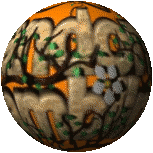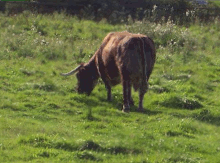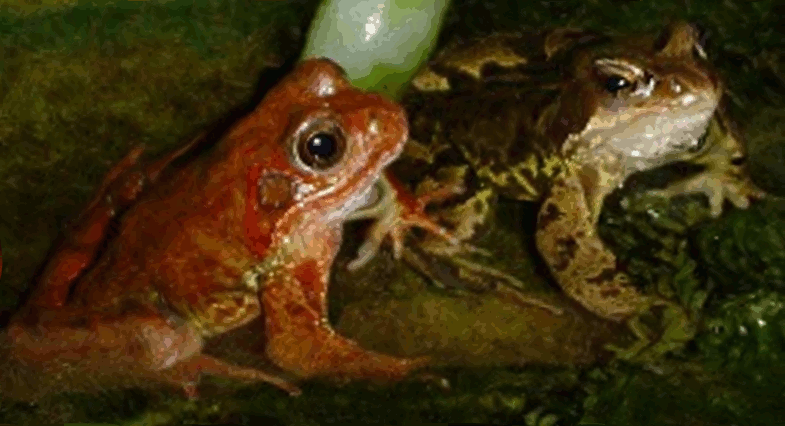Random Ramblings
Random Ramblings: Personal observations on a wide variety of subjects. Photographs of creatures and things that are taken on seeing the unusual as well as everyday things.
As I may have mentioned before, I grew up in a very small village in Worcestershire. There were residents that had always lived either in the village or fairly near by and had lovely melodic dialects. Others had travelled from various places and quite a few of those had grown up in Birmingham and so had a sing-song accent that made them into what was called ‘Brummies.’ This meant that youngsters such as myself used a variety of dialects and word pronunciation became a jumble of village and town.
For instance a flowering bush that everyone called lie-l’c (lilac) was pronounced lie-luck by many of the youngsters (others would say lie-lock or even lie-lurk) – we were always told that it obtained its name because it was a lucky plant and the luck lay with it, or luck lies when it is taken into the home. Perhaps it is the only hard wood that country folk actually take in the house as many believe that no woody plants should be cut and placed in a vase because it releases bad luck from the ground and into the home when displayed indoors. A superstition, of course, along with the many others that people worry about.
Here is a little verse that I wrote as a youngster about the lilac bush:
Luck lies beneath the lie-luck tree
That’s where you stole a kiss from me;
The lie-luck sealed it in your heart
Which meant that we would never part!



Where would humanity be -
Without charity
And philanthropy?

When I was a little child, my mother would frequently remind me how lucky I was to be me. None of us have the power to decide where we are going to be born, who are going to be our parents, what country we will grow up in or what our young lives have in store for us. We should never be quick to judge those who haven’t walked the safe paths that we have been fortunate to tread!
23rd of April, a day of celebrating the Patron Saint of England, St George. He was born in Lydda around the year 280 AD, some believe it to have been on 23rd April. He most certainly died on 23rd April in the year 303 AD. His father was Greek but George was born in Palestine when it was still under the flag of Rome. He became a Roman soldier and he was both brave and ferocious, which is why his reputation now includes that he was the slayer of dragons, for nothing ‘afeared’ him! Like many others preceding him he was in the end executed for his beliefs.

St George saying, toast, words inspiring love of the Patron Saint of England:
“May your sails be made of fine spun silk, your dreams be sweet and light but most of all may your life be free of dragons and if by chance it isn't, then the ghost of St George rise up and slay them all! No one should have dragons in their life! ♥♥♥” Anon
I don’t know why but I have always loved how once April has arrived, so does a wealth of early flowers and the clouds of bloom on the fruit trees. One of my favourite tiny flowers that makes the pathways smell almost like ‘dolly mixtures,’ a sort of heady and very sugary sweet perfume, is Little Dorrit. Pretty, tiny four-petal parcels of syrupy florets which explodes with scent in every direction. They are a remarkable plant and will grow just about anywhere. Simply scatter the seeds wherever there is just a suggestion of a scrap or crumb of soil and they will sprout into the healthiest of plants within a few weeks. They self-seed so once you have them you have a flower-friend for life!

Little Dorrit, Sweet Allysum, Alyssum maritimum, Lobularia maritima. This wonderful cottage garden plant is often called other names depending on which region of the world you are from. Other names include Alison, Allysum, Dorrit, Rockery Allysum, Sugar Allysum, House Maids ..

If you look very closely you should be able to see an almost microscopic creature that is on one of the small petals.
Although being an insect bees do not have a form of embryo like those in mammals, they do have a stage betwixt the egg and the grub which is the nearest the insect world has to the embryo. I was very fortunate when I was able to capture this stage of bee development.

Bee embryo (the stage between the egg and the grub)

First stage of the honey bee grub

Honey bee eggs laid in the wax cells of the comb
Some of the frogspawn in the pond has now developed into baby hatchlings (tiny tadpoles). All life from the egg to the new being is wondrous and amazing. So many variations and every one of them is just breath-taking.





The frogs in our area are extremely beautiful and very varied in colour and size. These are the first hatchlings (tadpoles) of the season of the Common Frog, often known as the European Common Frog, Rana temporaria. The tadpoles feed mainly as herbivores though when they are slightly larger they begin taking invertebrates ready for their final change into the parent frog.





























































